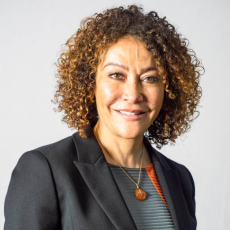How is the oil & gas industry integrating sustainability into its operations, given the urgency with which we need to address it?
We all have an ethical obligation to live our own lives as well as drive organizations in a sustainable way for the future of the planet. IOGP was established almost 50 years ago and besides speaking on behalf of the industry with Governments, policy makers and regulatory bodies, we also drive performance improvement in safety, environmental management, engineering, methane emissions management and of course, decarbonizing operations globally.
It may not be obvious, but energy transitions take decades. First oil was discovered in the mid-18th century, but it wasn't until the 20th century that it overtook wood or coal as the primary source of energy. So, it isn’t smart to demand that this transition be any different. That it can be a complete and rapid switch from today’s $85 trillion global economy which has an 80% reliance on hydrocarbons to a net carbon free economy of what could be a $185 trillion economy in 2050. And to do that in the next 30 years with the bulk of activities having to take place in the next decade is a massive task. That’s why in IOGP, in 2021, we set up a specific directorate focused on carbon capture, transportation and storage, reduction of flaring and venting, energy efficiency, methane emissions abatement and mitigation, and hydrogen. It's sad that it took an invasion of a country for policy makers to understand that climate change and energy security are interdependent. In the last five to ten years, the oil and gas industry has been vilified, but fossil fuels have been fundamental for the economic development of the world. The conversation has to stop being about ‘keeping fossil fuels in the ground’ and instead become about all the ways that this industry is cleaning up its production.
To what extent do you believe renewable energy will contribute to the climate dilemma and what is the role that oil & gas is expected to play during this transitional period?
I think that balance is the key to everything. We are seeing the emergence of Integrated Energy Companies that are diversifying their portfolios now so there is less investment in fossil fuels and more into renewable energy, but fossil fuels assure the cash flow needed to invest in greener energies. We just need to make sure we decarbonize those fossil fuels.

Until 2050, 45% of global energy demand will be met by fossil fuels, so we need to challenge the industry to become cleaner.
And we, at IOGP, provide the data to help this acceleration. Our Hydrogen for Europe and Re-Stream studies gave EU policy makers a platform to understand the significant potential for the re-use of oil and gas infrastructure to develop CCS and hydrogen.
IOGP has contributed to gas being included in the EU taxonomy earlier this year – what was the rationale behind this and the expected outcome?
International banks are being challenged on their funding of oil and gas projects, which is why sustainable finance is part of the puzzle of getting to net zero. Our team in Brussels has been working hard over the past three years on getting gas into the taxonomy, which is an important milestone. Given what we are seeing now in Europe with its security of supply issue, I think we should be grateful that the EC understood why we felt it was critical to include gas. Also important to note is that Europe has 3,500 billion cubic meters of fossil fuel supply that is 30% cleaner than anywhere else in the world, thanks to practices like carbon capture, so we need to leverage this opportunity fast. Another area we focus on in IOGP is ways in which the Global South can still exploit their resources in the cleanest way possible because we simply can't deny them this right.
Is there a power shift in strength and capabilities of NOCs and IOCs in relation to the green transition?
There's no power shift per se, but NOCs are coming into their rightful place. With many countries nationalizing their oil and gas reserves over the years, the power of NOCs has increased. Though they were historically reliant on IOCs to produce oil and gas, they are now becoming industry leaders, through years of experience, knowledge transfer, technical development, and access to capital. We are seeing many NOCs increasingly using gas to support national decarbonization goals, and allocating capital to, for example, carbon capture and storage at the planning or pilot stage. A few are taking the first steps to diversify into renewables and alternative energy.
Ultimately, both NOCs and IOCs will be crucial in progressing the green transition. IOCs have the financial and technical capability to support developing nations in their energy transition. NOCs can support governments in pushing renewable energy projects and providing citizens with clean energy.
What are the objectives IOGP is pursuing with priority in the coming five years?
We want to help our Members reduce the amount of carbon, and methane, in operations via increased efficiency, standardization, and use of technologies like carbon capture and storage. Historically, IOGP is recognized for holding some of the oldest and most comprehensive industry databases, and we will continue to publish them to support fact-based decision making based on operational insight that helps improve the industry. We are also working with our industry to make sure it remains attractive to highly talented problem-solvers and by reskilling a more diverse workforce. And finally, we will continue to advocate and work with regulators and governments to ensure policies are balanced to support an effective energy transition that considers the challenges and opportunities for all affected.





